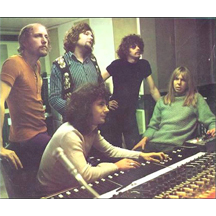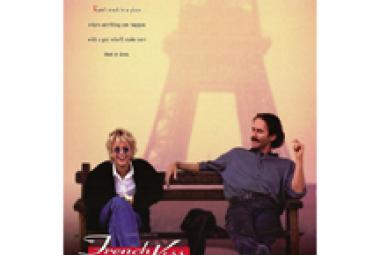Strawbs (or The Strawbs) are an English rock band founded in 1964. Although the band started out as a bluegrass group they eventually moved on to other styles such as folk rock, progressive rock, and (briefly) glam rock. They are best known for their hit, “Part of the Union”, which reached number two in the UK charts in February 1973, as well as for “Lay Down”, a popular Progressive Rock hit from the same LP. The Strawbs also toured with Supertramp in their “Crime of the Century” tour, doing their own “Hero and Heroine” tour, which drew musical similarities and themes. (More from Wikipedia)
Like another English band, the Yardbirds, the Strawbs (also known as Strawbs) is known as much for its previous musicians as it is for its early folk-rock and progressive-rock albums. Founded as a bluegrass band in 1964 called the Strawberry Hill Boys, their repertoire began to shift more toward folk rock, with longtime leader Dave Cousins writing much of their material. Sandy Denny was invited to join the Strawbs, and they recorded an album together in 1967 that was ultimately released in 1972 as All Our Own Work, under the name Sandy Denny and the Strawbs.
The album includes an early version of one of Sandy Denny’s best-known songs, “Who Knows Where the Time Goes”; Denny later recorded “Who Knows Where the Time Goes” with Fairport Convention when she became their lead singer in mid-1968. Judy Collins heard a demo of the song and decided to include it as the title song of one of her best albums, Who Knows Where the Time Goes. “Who Knows Where the Time Goes” was also released by Collins as the B-side of her #8 hit single, “Both Sides Now” (written by Joni Mitchell). I remember raising eyebrows with a friend ages ago; she seemed surprised that I was familiar with “Who Knows Where the Time Goes”, and honestly, at that time I might only have seen the Judy Collins album rather than actually having heard the song.
Future keyboard superstar Rick Wakeman was in the Strawbs in 1970 and 1971; he had been an active session musician, whose work includes playing mellotron on David Bowie’s first hit single, “Space Oddity” in June 1969. He remained with the band for three albums but eventually left when he decided that his presence was causing both he and the Strawbs to be creatively stagnant. Rick Wakeman joined Yes in 1971 and was with the band during their most productive period, for the albums Fragile, Close to the Edge, and Tales from Topographic Oceans. Rick Wakeman started his solo career by early 1974, though he continued to play with Yes off and on over the years, including their 35th anniversary concert in 2004.
* * *
After Rick Wakeman left Strawbs, bandleader Dave Cousins consulted the I Ching to see what was next for the band. Quoting Wikipedia: “The answer from the coins, ‘Humble must he constant be, where the paths of wisdom lead, distant is the shadow of the setting sun’, forms part of the first two lines of the lyrics of the song [‘Benedictus’].”
The song has a reverent tone; the frequent blessings that are included in the song – e.g., “Bless the soldier / Bless the saint / Bless all those whose hearts grow faint” – would help “Benedictus” slot right in as a praise song in a worship service. The instrumental break is unusual for a rock song and is performed on a dulcimer that is filtered through a fuzzbox. “Benedictus” is considered to be one of the signature songs of Strawbs and is included on their 1973 album, Grave New World. My copy of the song is on a double-LP called Best of Strawbs that sounds better every time I play it.
(July 2014)















